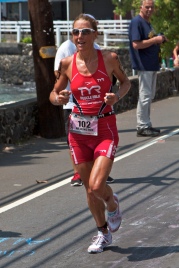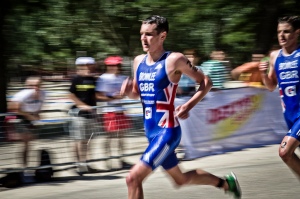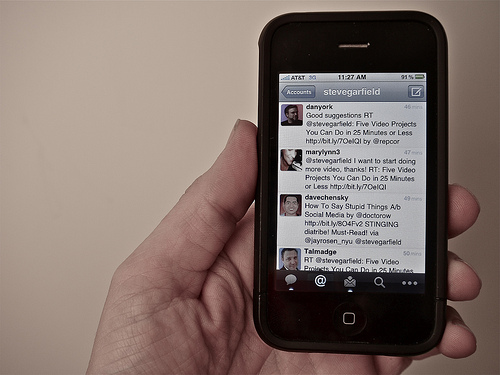With BBC’s Sports Personality Of The Year taking place this coming Thursday (22nd Dec) and the furore regarding the all-male shortlist having died down temporarily I think it’s time for me to give my opinion on all things SPOTY.
First of all the top-10 itself:
- Mark Cavendish – Cycling
- Darren Clarke – Golf
- Alastair Cook – Cricket
- Luke Donald – Golf
- Mo Farah – Athletics
- Dai Greene – Athletics
- Amir Khan – Boxing
- Rory McIlroy – Golf
- Andy Murray – Tennis
- Andrew Strauss – Cricket
The Controversy
The fact that this year’s ten nominees are all male can be viewed in different ways. The most obvious is that the female sports stars of the United Kingdom aren’t receiving the same recognition for their successes as their male counterparts. However this is a fairly simplistic and reactionary view to take, not one that is totally incorrect, but one that needs more consideration.
The women that have been most successful in 2011 and could justifiably feel most aggrieved at being left off the list are Rebecca Adlington, Keri-Anne Payne, Chrissie Wellington and Sarah Stevenson. All of these women have been crowned world champion in 2011, however were you to ask a selection of the general public which sport they competed in I’d wager that the vast majority of people would come unstuck after Rebecca Adlington. The fact of the matter is that open water swimming, Ironman triathlon, taekwondo and to some extent swimming, are all minority sports.
We have male world champions in swimming (Liam Tancock) and squash (Nick Matthew) and plenty of other sports, who also failed to make the shortlist – suggesting that the issue isn’t solely one of sex but also the coverage certain sports receive. The fact that all the above mentioned females received three or more votes (out of 27) when Tancock and Matthew received none, could be viewed as positive discrimination (not my opinion but a possible interpretation).
Were the exploits of all our world champion athletes in minority sports publicised more, then I’m sure more of them would have featured more prominently in the voting. Unfortunately the nature of the competition means that success in your chosen sport doesn’t guarantee you recognition.
One thing we can categorically say was wrong though was Gary Lineker’s assertion on The One Show that “perhaps it hasn’t been the best year for women in sport”, I think we’ve seen enough gold medals around women’s necks in 2011 to refute that claim.
Onto the trivial side of things now but one of my biggest annoyances with SPOTY is people’s argument that just because the award features the word ‘personality’ in its title then past winners such as Nigel Mansell and Steve Davis, or current nominee Andy Murray, aren’t worthy because they lack ‘personality’.
The word personality has several different definitions, one of which being “a well known person in a certain field, such as sport or entertainment” (that comes straight from the dictionary by the way). Therefore the fact that some perceive a certain sportsperson to be boring should bear no influence on whether or not they are nominated.
Another of my annoyances is with those who solely criticise the BBC for the fact that this year’s shortlist is an all-male affair. The BBC make it quite clear that the shortlist is drawn up by sports editors from newspapers and magazines across the country. Therefore the majority of the ire that is spouted in the BBC’s direction should mainly be aimed at the journalists of the country who failed to recognise the fantastic achievements of our female athletes in 2011. I say the majority of the ire though as the BBC is responsible for selecting the publications that receive a vote so must take some flack for their choices.
The main cause for criticism of the BBC is the inclusion of the magazines Nuts and Zoo. I don’t think it is unfair to say that these publications are aimed squarely at the male market, and as such may skew the voting process in favour of male sportspeople (neither included a female in their top-10s). Why should publications whose primary objective is to titillate teenage boys get a say in who wins a sports award?
A popular argument I have heard to counter this bias is to include their female equivalent publications in the voting process. Unfortunately mainstream women’s magazines are not sport-specific enough to warrant a vote either in my opinion. Therefore my solution would be to just get rid of Nuts and Zoo.
The voting for a sports award should be restricted to publications whose sole focus is high quality sports journalism and the reporting of currents affairs, which by definition will cover sporting events. There should also be no local bias to the publication, therefore the BBC’s decision to include the local paper from whichever city is hosting SPOTY is also questionable. When you take a look at the Manchester Evening News’ top-10 you can see why I’m sceptical (their list included four Manchester based footballers and the Lancashire CCC captain).
I am pleased to say that as a result of the controversy the 2011 shortlist generated the BBC have announced that they are to review their list of publications who receive a vote.
The Awards
Enough of the politics now and on to the actual awards, my personal top-10 would be slightly different to the final shortlist but I’ll do my best to justify everyone’s inclusion.
My Top 10
Alistair Brownlee – the elder of the Brownlee brothers cemented his position as the undisputed king of the Olympic distance triathlon this year, he won the world series title, the world championships, the european championships and combined with little brother, training partner and biggest rival, Jonny and women’s world champ Helen Jenkins to take the world team crown as well.
Mark Cavendish – the Manx Missile has had a phenomenal year, first Brit ever to win the Green Jersey at the Tour de France and the first Brit since Tom Simpson in 1965 to pull on the rainbow jersey of the world road-race champion.
Darren Clarke – won the Open, not a stellar year otherwise but that one achievement can make a career in itself, let alone a single season.
Luke Donald – the first person to win both the European and PGA money lists in the same year, world number 1, PGA Tour and European Tour player of the year. He didn’t win a major but four tournament victories, 14 top 10 finishes out of 19 PGA events and the lowest scoring average on the PGA tour have made 2011 quite a year for Donald.
Mo Farah – 5K gold and 10K silver at the world championships meant Mo Farah had finally fulfilled his potential and announced himself on the world stage.
Dai Greene – adding the 400m hurdles world title to his ever-growing collection and beating all-comers in the Diamond league meant 2011 could scarcely have gone better for the Welshman.
Rory McIlroy – he became the youngest winner of the US Open for many a year with a dominant display of golf reminiscent of Tiger in his prime, pushed Donald all the way in the European money list and rose to number two in the world. To top it all off he’s started dating world tennis number one Caroline Wozniacki – the shaggy haired Northern Irishman has had a year to remember.
Keri-Anne Payne – she regained her world open-water (10km) swimming title this year, in the process qualifying for next year’s Olympics, and was dominant throughout the year to be named the FINA open water swimmer of the year.
Jonathan Trott – the South African born batsman has been Mr. Consistency in 2011 for England, playing a critical role in retaining the Ashes in Australia as well as contributing to the 4-0 whitewash of India which took England to the top of the test rankings. He also scored 5 half centuries in the world cup and was named the ICC cricketer of the year, England cricketer of the year and Wisden cricketer of the year for 2011 – not a bad set of awards to have to your name.
Chrissie Wellington – the Queen of Ironman triathlon won her fourth world title whilst carrying an injury, she also broke her own world record earlier in the year and remains unbeaten over the Ironman distance (2.4 mile swim, 112 mile bike ride, 26.2 mile run).
My Omissions
I have omitted Amir Khan, Andy Murray, Andrew Strauss and Alastair Cook from the official shortlist but as brilliant years as those four have had I think my four replacements have had better years.
Amir Khan has failed to capture the public’s imagination and lost his world title last weekend with an immature performance. Andy Murray may have had his most successful and consistent year to date but until he breaks into the top two or wins a major then I feel world champions deserve their place amongst the top 10 more than the Scotsman. Andrew Strauss may have captained his side to the top of the world but on a personal level he has not had the best year with the bat.

Jonathan Trott has been a consistently high performer for England in all forms of cricket in 2011. Photo: TGIGreeny
My most controversial omission will probably be the one they call ‘Chef’. Alastair Cook had an outstanding winter with the bat but only really made one meaningful contribution in the test series against India (admittedly it was a magnificent 294). I believe Trott has had a more consistent year overall, contributing more in the 50-over format of the game, and warrants selection over Cook.
My Winners
SPOTY – Mark Cavendish
Team – England Test Side
Coach – Andy Flower (England cricket)
Overseas – Novak Djokovic
Young SPOTY – Eleanor Simmonds
What Can We Learn?
With all that I have said regarding the lack of females on the shortlist, the lack of recognition for our world champions in minority sports and the way in which the shortlist is drawn up it is important to remember that this award isn’t the reason athletes take up sport. I don’t believe that people dream of becoming BBC SPOTY as a child, I believe they dream of being world champion, winning a major, setting world records or being world number one. This award is a nice accolade to go with all the other more important titles you must’ve won to be even considered for it, so we shouldn’t take it too seriously (not that I won’t complain to anyone who will listen if Mark Cavendish doesn’t win on Thursday of course).
If any messages can be taken from the controversy this year’s award has created then hopefully they will be as follows:
- Female sport is under-represented in the media when compared to the male equivalent
- Successful athletes in minority sports don’t get enough coverage
- Mainstream female publications need to feature female sporting role models more
- The publications that criticised the BBC for not including any females in the shortlist should examine how their sports editors voted and how they cover female sport before castigating the BBC
Finally, because I’m very sad and some of you may be interested, I’ve trawled the voting list and counted just how many votes each sports personality received (out of a possible 27 votes):
27 – Rory McIlroy, 26 – Darren Clarke, 24 – Mo Farah, 23 – Mark Cavendish, 19 – Alastair Cook, 15 – Dai Greene, 14 – Andy Murray, Andrew Strauss, 11 – Luke Donald, 7 – Amir Khan, 6 – Rebecca Adlington, Stuart Broad, Jenson Button, 5 – Keri-Anne Payne, Graeme Swann, 4 – James Anderson, Alistair Brownlee, Sam Warburton, 3 – Gareth Bale, Carl Froch, Scott Parker, Sarah Stevenson, Sam Tomkins, Sam Waley-Cohen, Chrissie Wellington, 2 – Katherine Grainger, Victoria Pendleton, 1 – Nicola Adams, Ben Ainslie, Ian Bell, Dimitar Berbatov, Glenn Chapple, Hannah England, Jessica Ennis, Dario Franchitti, George Groves, Tony McCoy, George North, Shanaze Reade, Stef Reid, Jamie Roberts, Wayne Rooney, Paul Sholes, Louis Smith, Yaya Toure, Jonathan Trott, Judd Trump, Hayley Turner, Patrick Vieira, David Weir.
Photos: Media City – Magnus D, Chrissie Wellington – Mal Booth, Alistair Brownlee – Adolf Boluda, Jonathan Trott – TGIGreeny






